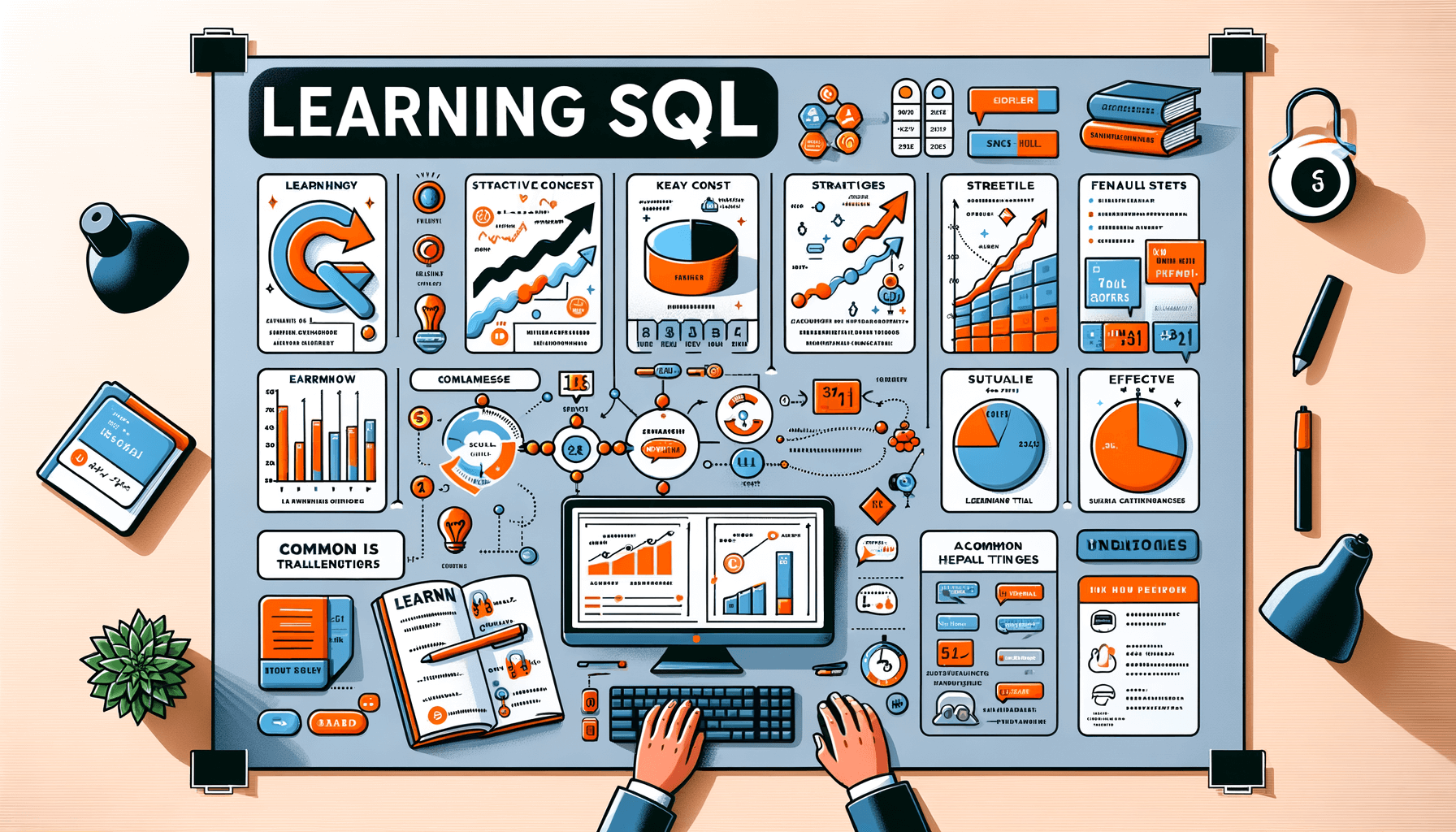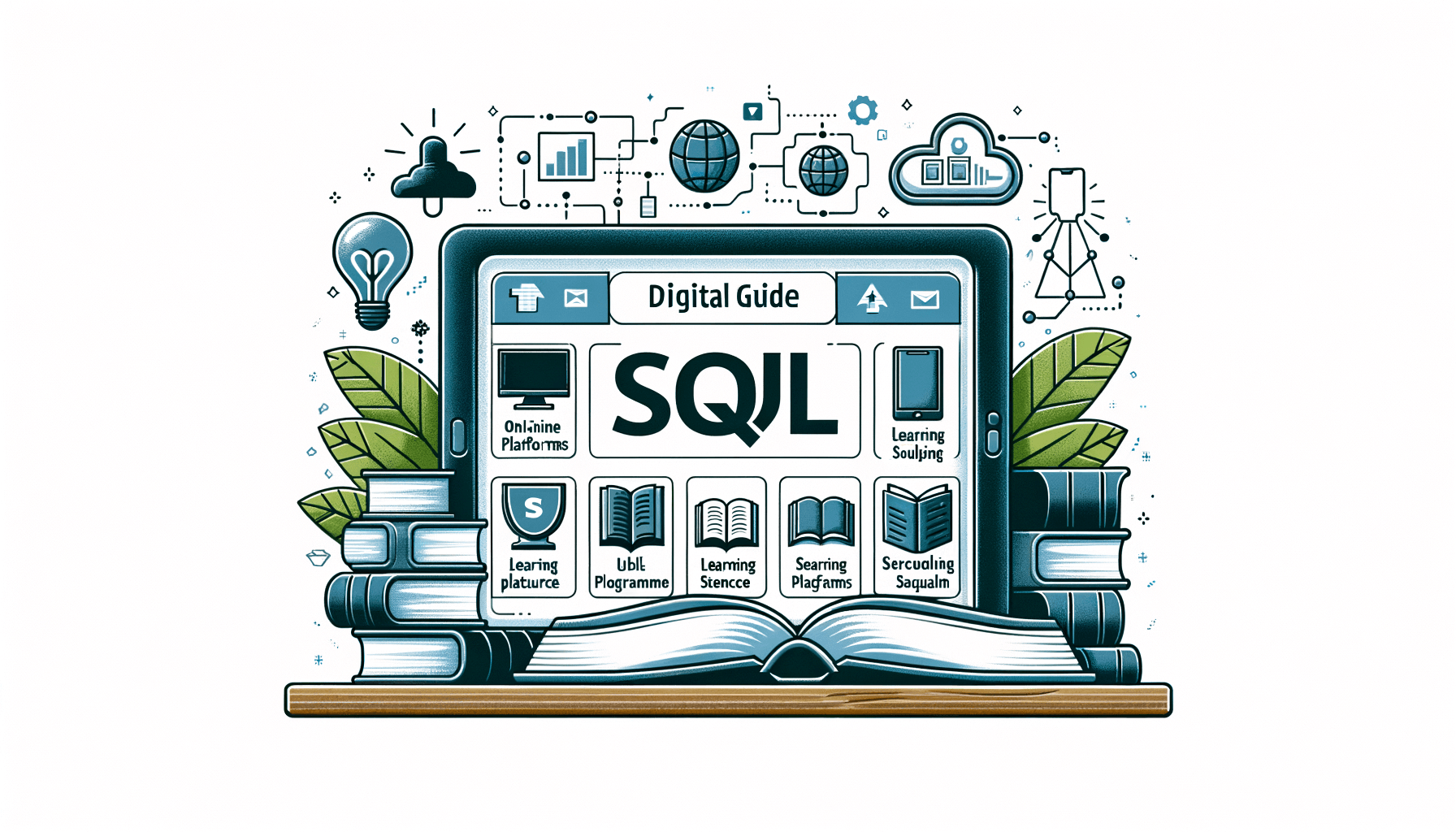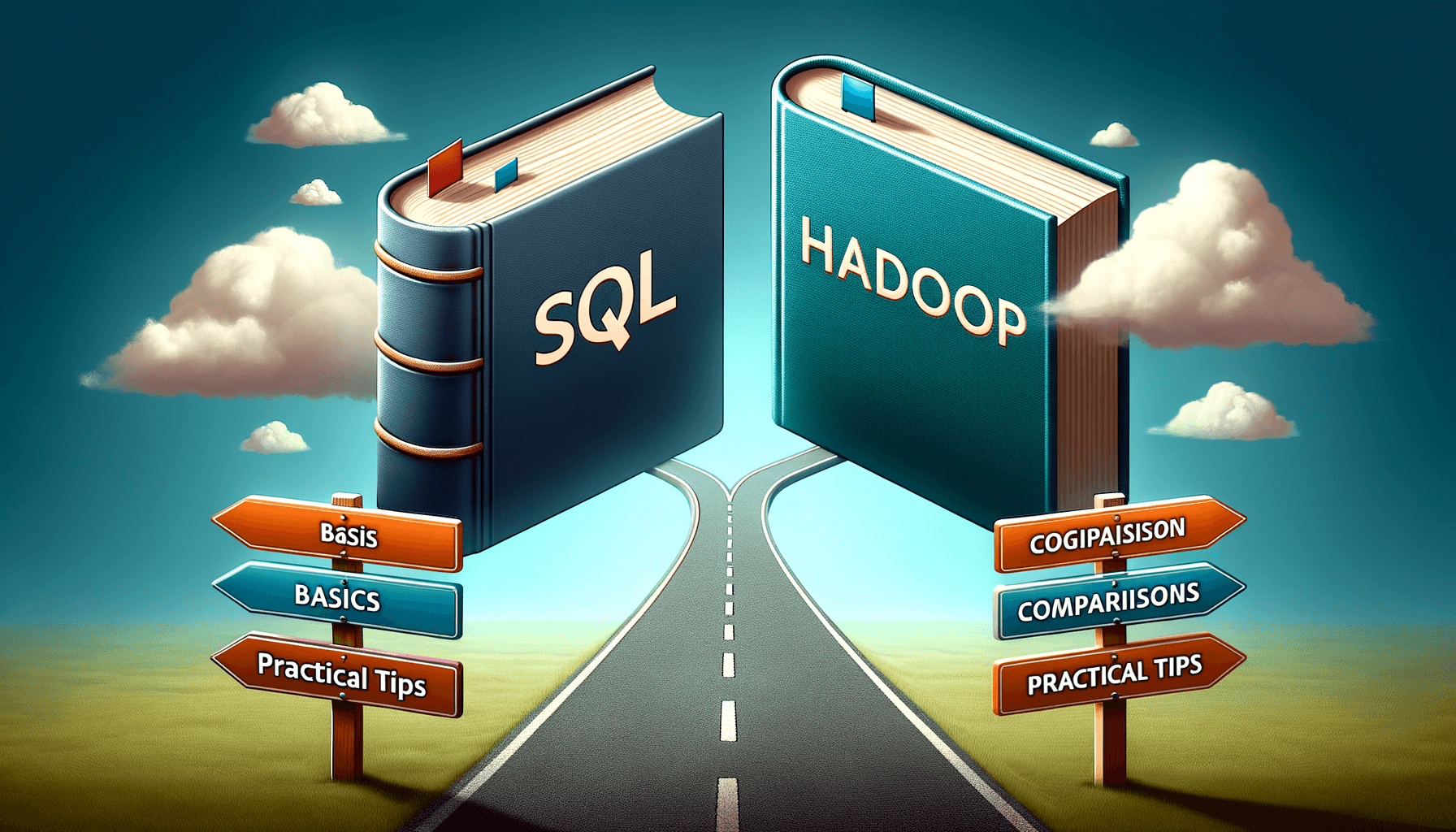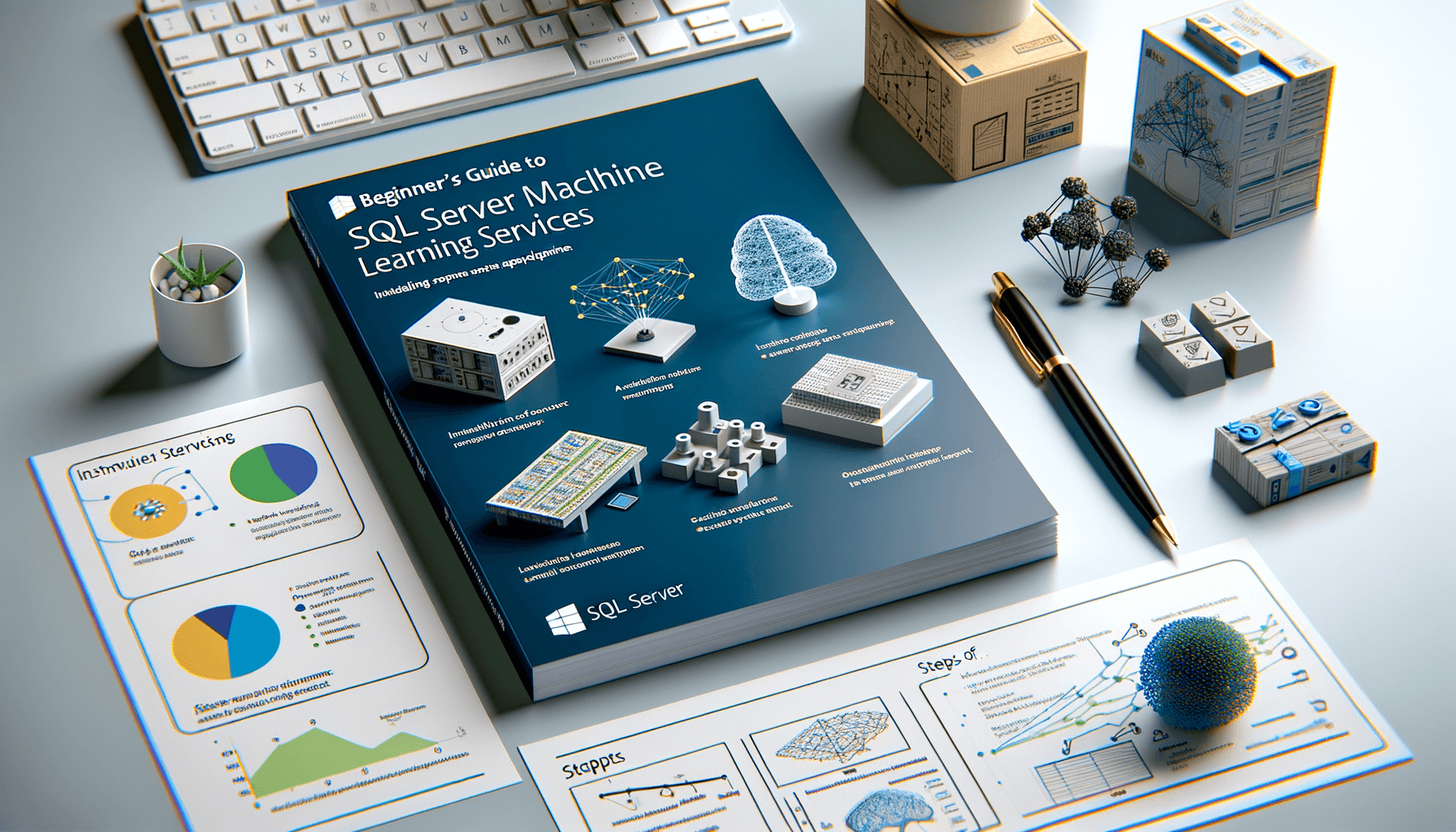A big variety of articles and resources

How Fast Can I Learn SQL? Tips and Timelines
 Sia Author and Instructor
Learn SQL
Sia Author and Instructor
Learn SQL
9 minute read
Learning SQL can open many doors in the world of data management and analysis. Whether you're a beginner or have some programming experience, understanding SQL can be a valuable skill. This article will guide you through the basics, the factors that affect how quickly you can learn, and the best strategies to speed up your learning process. We’ll also cover the challenges you might face and how to measure your progress. Finally, we'll look at advanced topics you can explore once you’ve mastered the basics.
Key Takeaways
- Learning SQL is important for data management and analysis.
- Prior programming experience can make learning SQL faster.
- Using good learning resources can speed up the process.
- Regular practice is key to mastering SQL.
- Advanced topics in SQL can further enhance your skills.
Understanding the Basics of SQL
Key Concepts and Terminology
SQL, or Structured Query Language, is the standard language used to communicate with databases. It allows us to store, manipulate, and retrieve data efficiently. Understanding the basic concepts and terminology is crucial for anyone starting with SQL. Key terms include tables, rows, columns, and queries. Tables are collections of related data, rows are individual records, and columns are the attributes of the data. Queries are the instructions we use to interact with the database.
Importance of SQL in Data Management
SQL plays a vital role in data management. It is the backbone of many database systems, enabling us to handle large volumes of data with ease. Whether we are working in business, research, or technology, SQL skills are essential. They help us make sense of data, generate reports, and support decision-making processes. In today's data-driven world, mastering SQL basics is a valuable asset.
Common SQL Commands
To get started with SQL, we need to learn some common commands. These include SELECT, INSERT, UPDATE, and DELETE. The SELECT command is used to retrieve data from a database. INSERT allows us to add new records, while UPDATE lets us modify existing ones. DELETE is used to remove records from a table. By mastering these commands, we can perform basic data operations and build a strong foundation in SQL.
Factors Influencing the Speed of Learning SQL
Prior Programming Experience
Having a background in programming can significantly speed up your SQL learning process. If you've already worked with other languages, you'll find it easier to grasp SQL's syntax and logic. This familiarity can make the transition smoother and less intimidating.
Learning Resources and Tools
The quality and variety of learning resources play a crucial role. For instance, a data analyst - introduction to SQL course offers hands-on projects, personalized support, and industry best practices. These resources can make learning more engaging and effective.
Time Commitment and Practice
Consistent practice is key to mastering SQL quickly. Dedicating regular time to study and practice can lead to faster progress. Setting aside specific hours each week for SQL can help you stay on track and retain information better.
The more time you invest in practicing SQL, the quicker you'll become proficient. Regular practice helps reinforce what you've learned and builds confidence in using SQL for real-world tasks.
Effective Strategies for Learning SQL Quickly
Structured Learning Plans
Creating a structured learning plan is essential for mastering SQL basics. By setting clear goals and milestones, we can track our progress and stay motivated. A well-organized plan helps us focus on one concept at a time, making the learning process more manageable.
Hands-On Practice
Hands-on practice is crucial for learning SQL quickly. By working on real-world projects and solving practical problems, we can apply theoretical knowledge and gain valuable experience. This approach helps us understand the nuances of SQL commands and their applications.
Utilizing Online Courses and Tutorials
There are numerous online courses and tutorials available that can help us learn SQL at our own pace. These resources often provide step-by-step instructions and interactive exercises, making it easier to grasp complex concepts. Many platforms offer free trials, allowing us to explore different courses before committing to a subscription.
By leveraging these strategies, we can master SQL basics for beginners at our own pace. No credit card required. Login or sign up to start learning with SQLSkillz.
By following these effective strategies, we can accelerate our SQL learning journey and achieve proficiency in a shorter time frame.
Challenges You Might Face While Learning SQL
Complex Query Syntax
One of the first hurdles we might encounter is the complex query syntax. SQL commands can sometimes be tricky, especially when dealing with nested queries or multiple joins. Understanding the structure and flow of these commands is crucial for writing efficient queries.
Understanding Database Schemas
Grasping the concept of database schemas can be another challenge. A schema defines how data is organized within a database, and knowing how to navigate and manipulate this structure is essential. We need to familiarize ourselves with different schema designs and their applications.
Debugging and Troubleshooting
Debugging SQL queries can be frustrating. Errors might not always be clear, and finding the root cause requires patience and practice. It's important to develop a systematic approach to troubleshooting, which includes checking syntax, reviewing logic, and testing queries step-by-step.
While learning SQL, we might find ourselves comparing resources like sqlskillz.com vs w3schools.com. Both platforms offer great tutorials, but it's essential to choose one that fits our learning style and pace.
Measuring Your Progress in SQL Mastery
Setting Achievable Goals
To measure our progress in SQL, we need to set clear and realistic goals. These goals should be specific, measurable, and time-bound. For example, we might aim to write a certain number of SQL queries each week or complete a project by a set date. Setting achievable goals helps us stay motivated and track our improvement.
Tracking Improvement Over Time
Keeping a record of our progress is essential. We can use a journal or a digital tool to log the SQL concepts we've learned and the challenges we've overcome. This practice not only shows us how far we've come but also highlights areas where we need more practice. Regularly reviewing our progress helps us stay on track and adjust our learning plan as needed.
Seeking Feedback and Assessment
Getting feedback from others is crucial for our growth. We can share our SQL projects with peers or mentors and ask for their input. Constructive feedback helps us identify our strengths and weaknesses. Additionally, taking online quizzes or assessments can provide a benchmark for our skills. Engaging with a blog page on sqlskillz.com with articles, tutorials, and insights on SQL skills can also offer valuable tips for rapid mastery.
Regular feedback and self-assessment are key to mastering SQL. They help us understand our progress and areas that need improvement.
Advanced Topics to Explore After Mastering SQL Basics
Performance Optimization Techniques
Once we've got the basics down, it's time to make our SQL queries faster. Optimizing performance can save a lot of time and resources. We can start by learning about indexing, which helps speed up data retrieval. Another key area is query optimization, where we tweak our queries to run more efficiently. Understanding how to use execution plans can also give us insights into how our queries are being processed.
Advanced Query Functions
After mastering the basics, we can dive into more complex query functions. These include window functions, which allow us to perform calculations across a set of table rows related to the current row. Another advanced function is the Common Table Expression (CTE), which makes our queries easier to read and maintain. We can also explore subqueries and nested queries to handle more complex data retrieval tasks.
Integration with Other Technologies
SQL doesn't work in isolation. It's often used alongside other technologies. For instance, we might integrate SQL with Python for data analysis or use it with web development frameworks like Django. Learning how to connect SQL databases with other tools can open up new possibilities for our projects. We can also explore how SQL interacts with big data technologies like Hadoop and Spark.
Mastering these advanced topics can significantly enhance our SQL skills and open up new opportunities in data management and analysis.
Once you've got the basics of SQL down, it's time to dive into more advanced topics. Our website offers a range of courses that can help you take your skills to the next level. From complex queries to database optimization, we've got you covered. Don't miss out on the chance to become a true SQL expert. Visit our website today and explore our advanced courses!
Conclusion
Learning SQL can be a rewarding journey, whether you're aiming to enhance your career or simply want to manage data more effectively. The time it takes to learn SQL varies based on your prior experience, the resources you use, and the amount of time you dedicate to practice. By setting clear goals, using quality learning materials, and practicing regularly, you can master the basics of SQL in a few weeks. Remember, becoming proficient takes time and patience, but with consistent effort, you will see progress. Keep challenging yourself with new projects and real-world problems to deepen your understanding and skills.
Frequently Asked Questions
How long will it take to learn SQL?
The time it takes to learn SQL can vary. If you dedicate a few hours each week, you might grasp the basics in a month. However, mastering it can take several months to a year.
Do I need to know programming to learn SQL?
No, you don't need prior programming experience to learn SQL. However, if you do have some background in programming, it might make learning SQL easier.
What are some good resources to learn SQL?
There are many resources available to learn SQL. Online courses, tutorials, and books are great places to start. Websites like Codecademy, Coursera, and Khan Academy offer good courses.
Why is SQL important?
SQL is important because it helps manage and manipulate databases. It's used in many jobs and industries, making it a valuable skill to have.
What common challenges might I face while learning SQL?
Some common challenges include understanding complex query syntax, learning how database schemas work, and troubleshooting errors in your queries.
How can I measure my progress in learning SQL?
You can measure your progress by setting goals, tracking your improvement, and seeking feedback from others. Practice regularly and take assessments to see how much you've learned.
Related Articles

Best SQL Learning Resources: Your Ultimate Guide
10 minute read

Do we need SQL knowledge to learn Hadoop?
14 minute read





